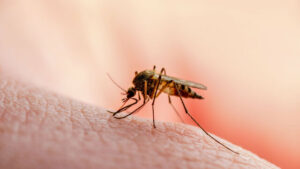A total of 12 deaths in patients with West Nile virus infection have been recorded since the beginning of the year through August 21, aged 60 years or older. The median age of the deceased is 83 years, while the victims range from 61 to 92 years.
During the past week, two deaths were recorded and 24 new domestic cases were diagnosed/reported, according to the epidemiological report of the EHRC. There have also been three imported cases of the infection in patients exposed in another foreign country (Albania), which are not included in further analysis.
In total, 100 domestic cases of West Nile virus infection in Greece, of which 76 cases had central nervous system manifestations (CNS, encephalitis and/or meningitis and/or acute flaccid paralysis) and 24 cases had mild manifestations/no CNS manifestations.
Cases of West Nile virus infection occur in many countries worldwide, as well as in many European countries, on an annual basis. In the years 2010-2014 and 2017-2023, cases of West Nile virus infection were recorded in various regions (and) of our country during the summer and autumn months, while virus circulation has been previously recorded in all Regions.
The occurrence of cases of West Nile virus infection on an almost annual basis over the last decade suggests that West Nile virus has established itself in our country, as in other European countries. Therefore, it was considered possible and expected that cases would reappear in the current 2024 mosquito circulation period, both in known and – possibly – new areas.
The EODY had already informed (in May 2024) health professionals nationwide, as well as the public, about the expected reappearance of cases in the country during the current mosquito circulation period and the recommended protection measures.
In which areas outbreaks are recorded
This year and until August 21, cases of West Nile virus infection in Greece have been recorded and investigated in settlements in the Regional Units of Larissa, Karditsa, Lefkada, Chalkidiki, Halkidiki, Pella, Serres, Kilkis, Imathia, Achaia, Thesprotia, South Sector of Athens, Argolida, Rodopi, Drama, Evros, Xanthi, Fthiotida and in the Metropolitan Unit of Thessaloniki.
The EODY considers the diagnosis of further cases in the coming period as possible and expected. In the European Union and its neighbouring countries, cases of infection with the virus have been recorded – apart from our country – in: Italy, Spain, France, Austria, Austria, Hungary, Romania, Croatia, Serbia and Spain.
Epidemiological surveillance of the disease, the timely implementation of appropriate integrated mosquito control programmes and the adoption of personal protection measures against mosquitoes are the most appropriate measures to control the disease. In this context, the vigilance of health professionals on the one hand, and the continued vigilance of local and national authorities on the other, are necessary.
Ask me anything
Explore related questions





